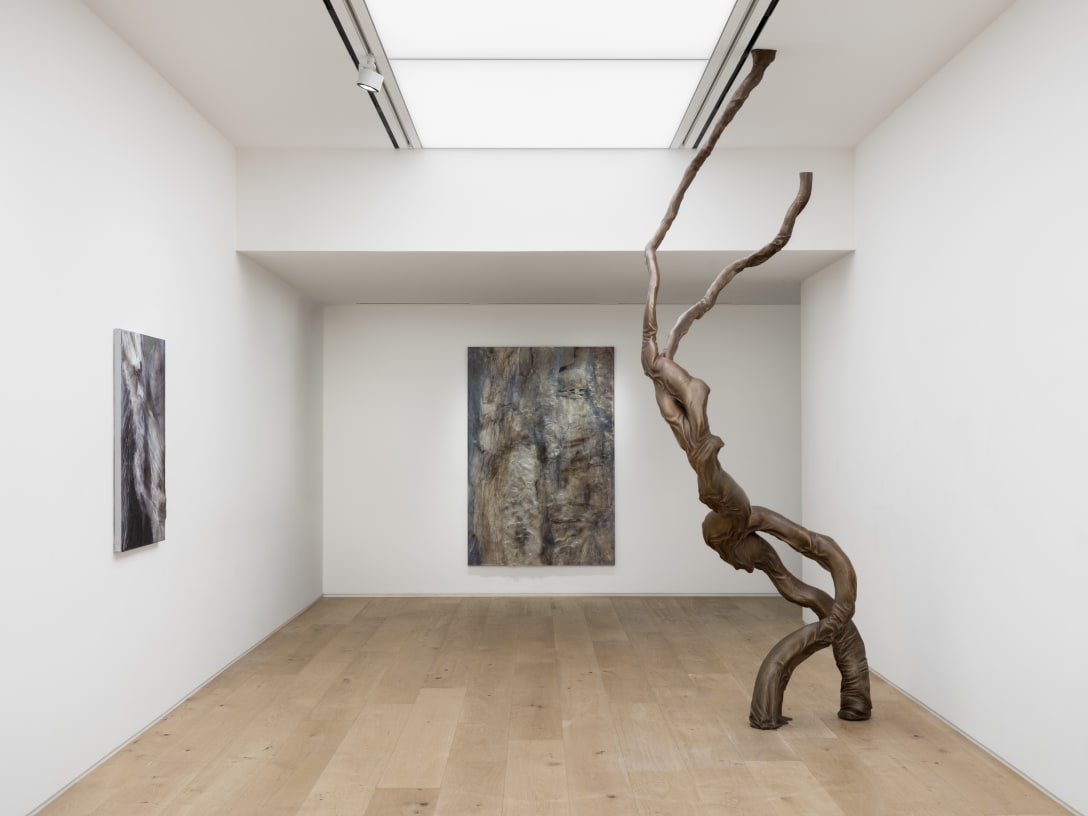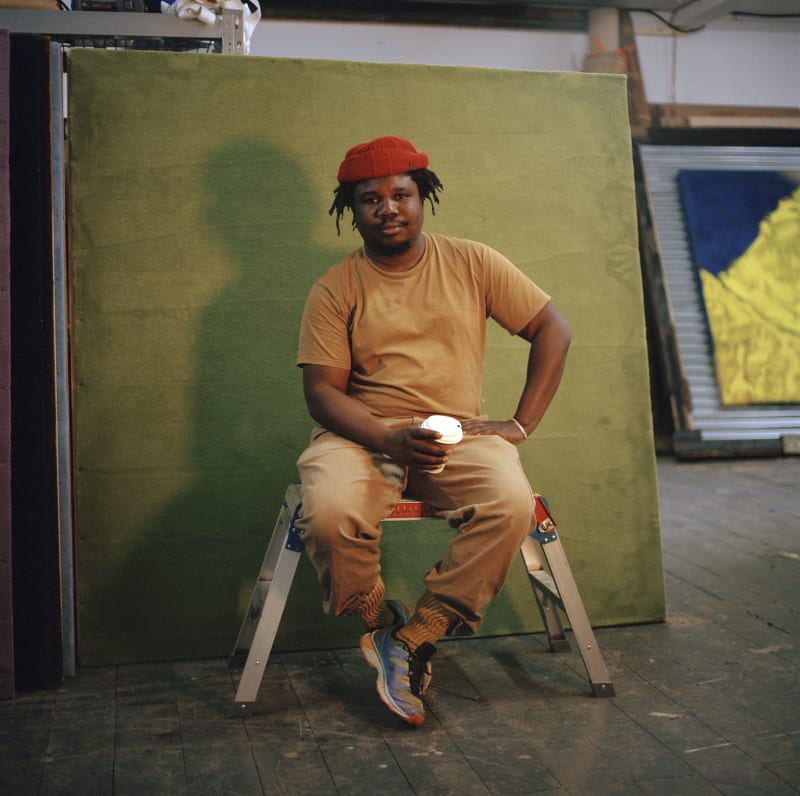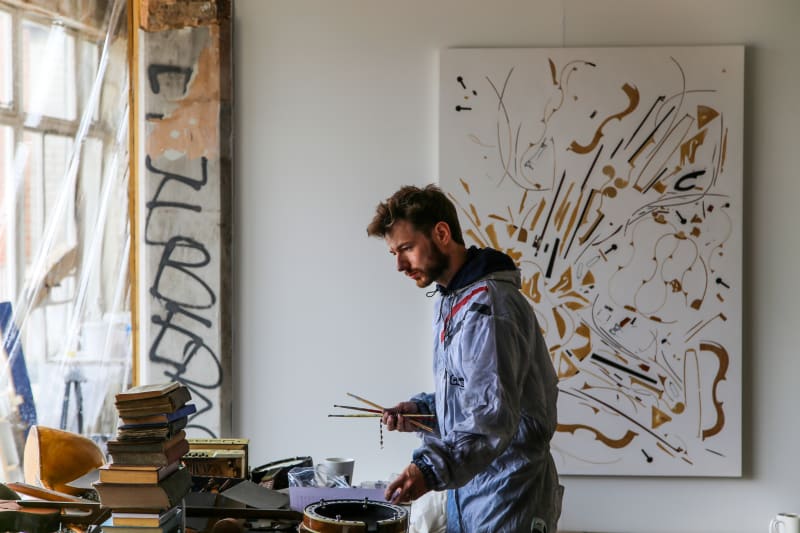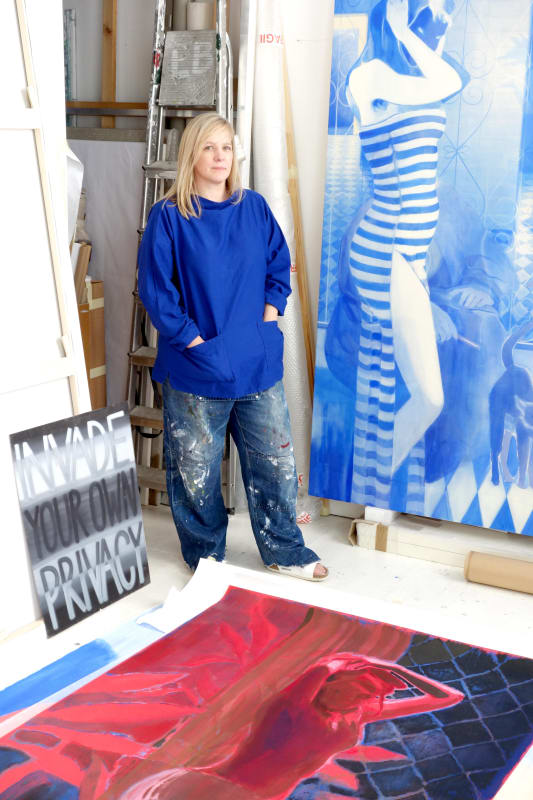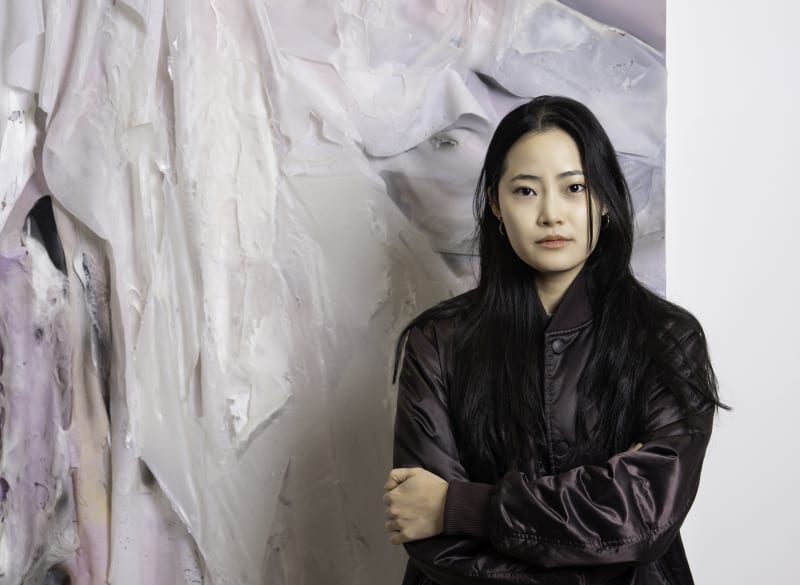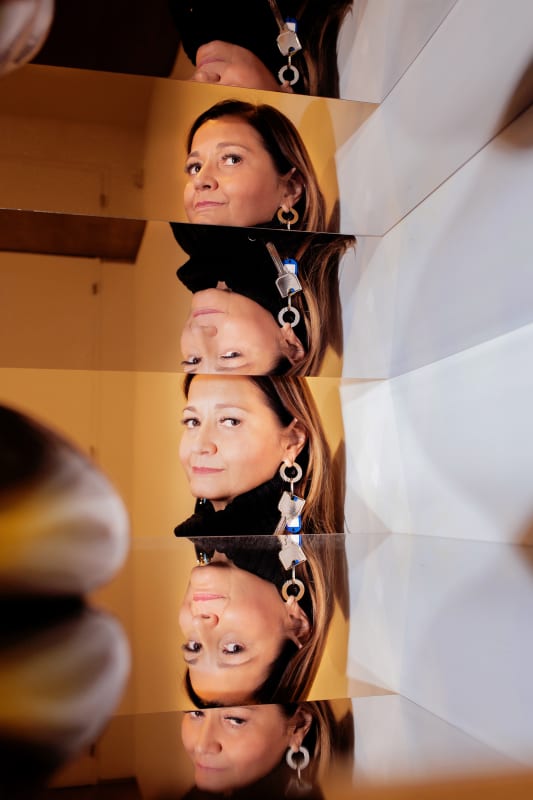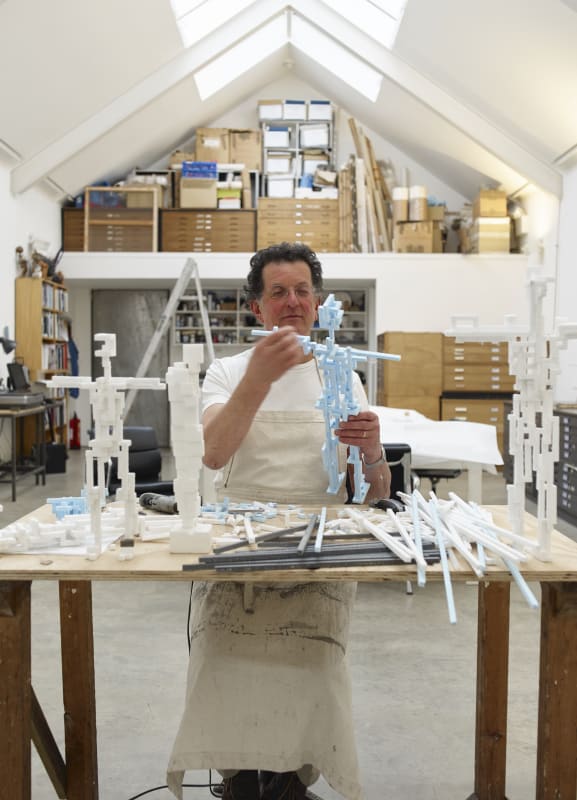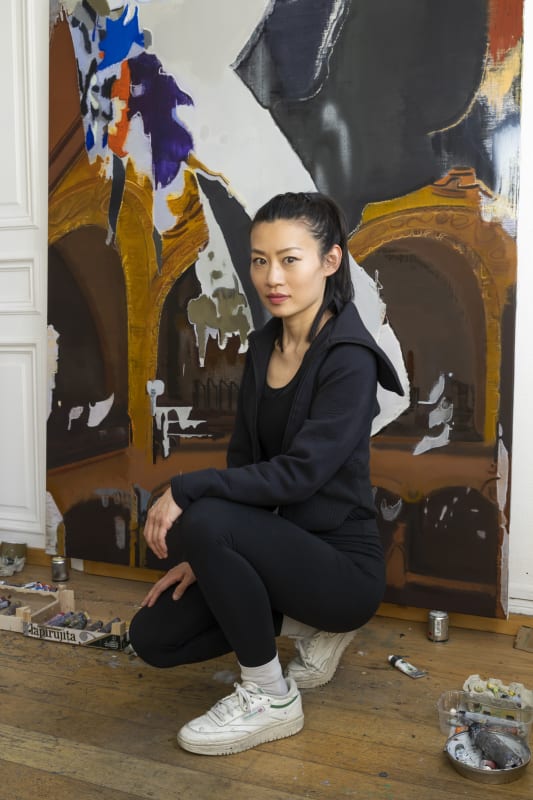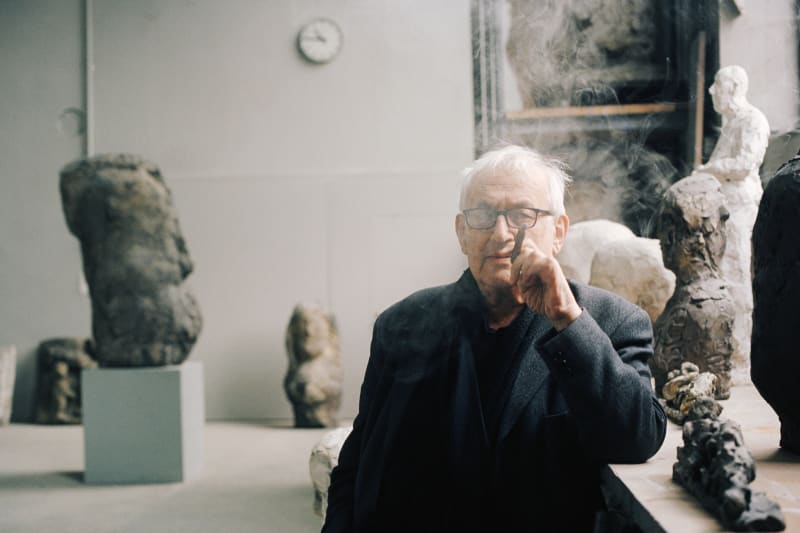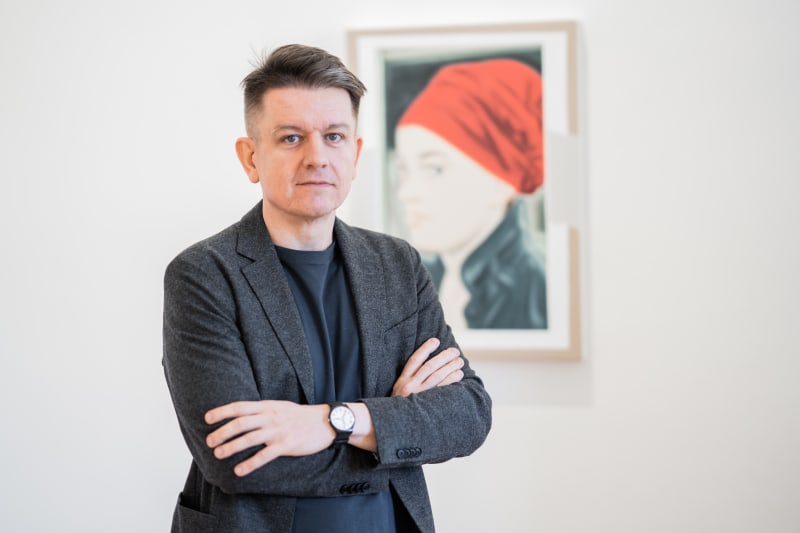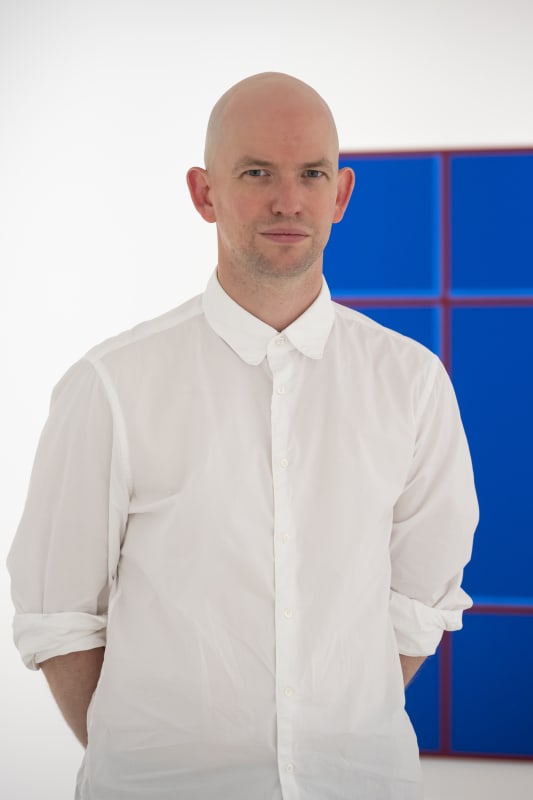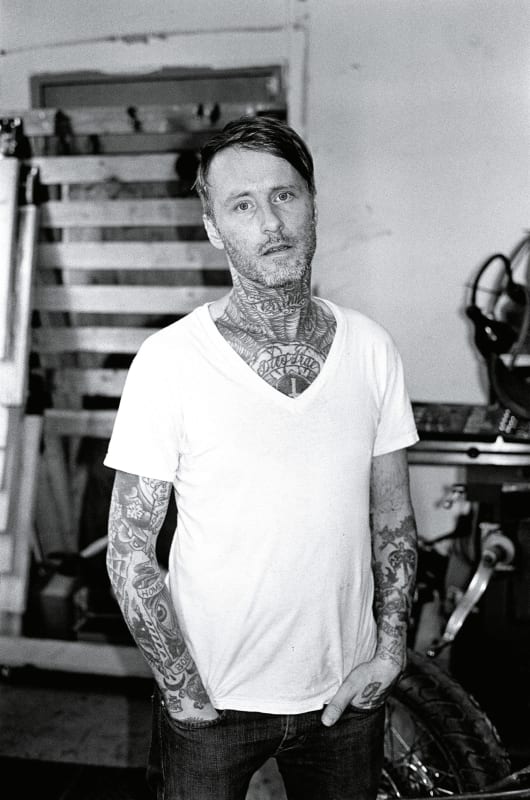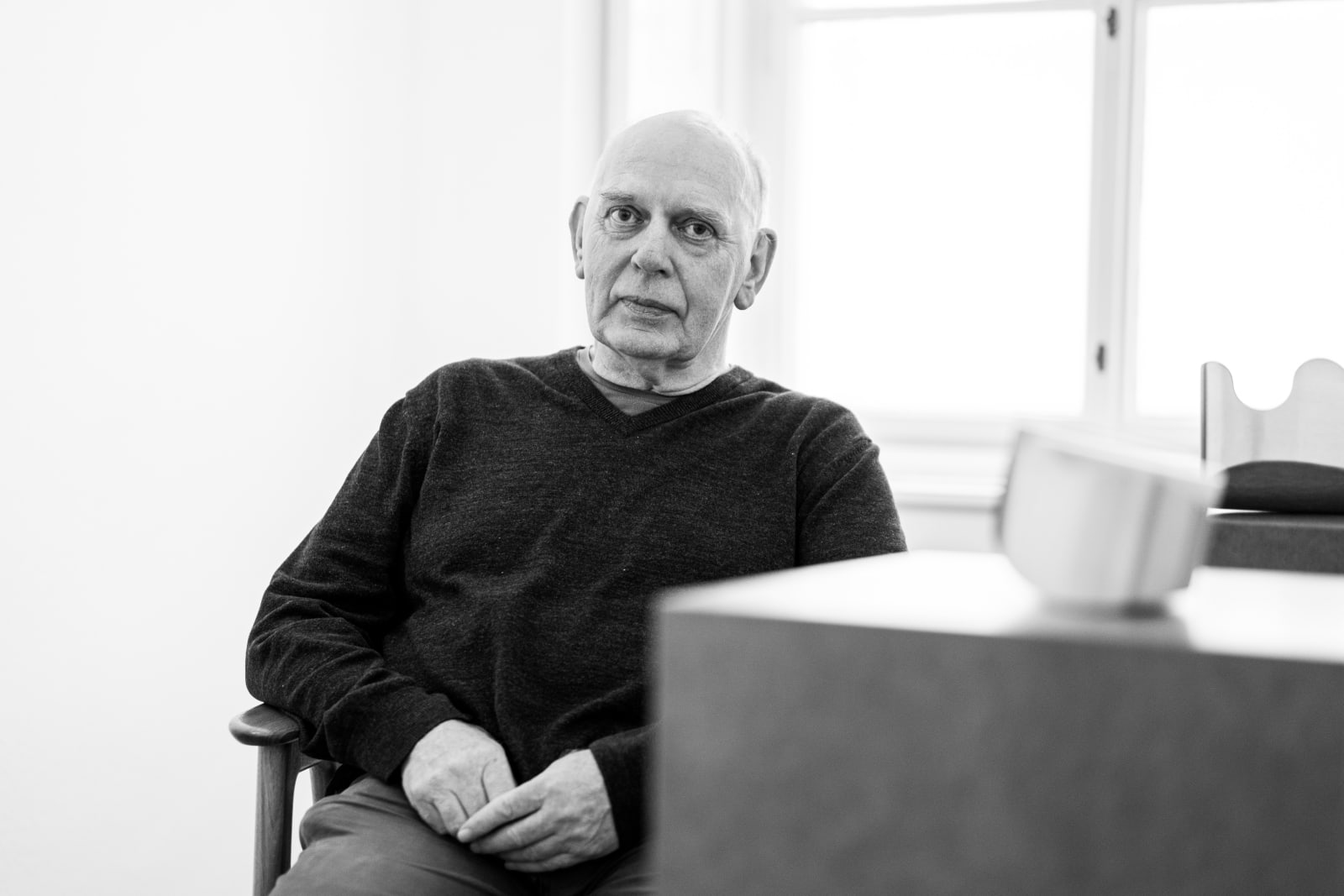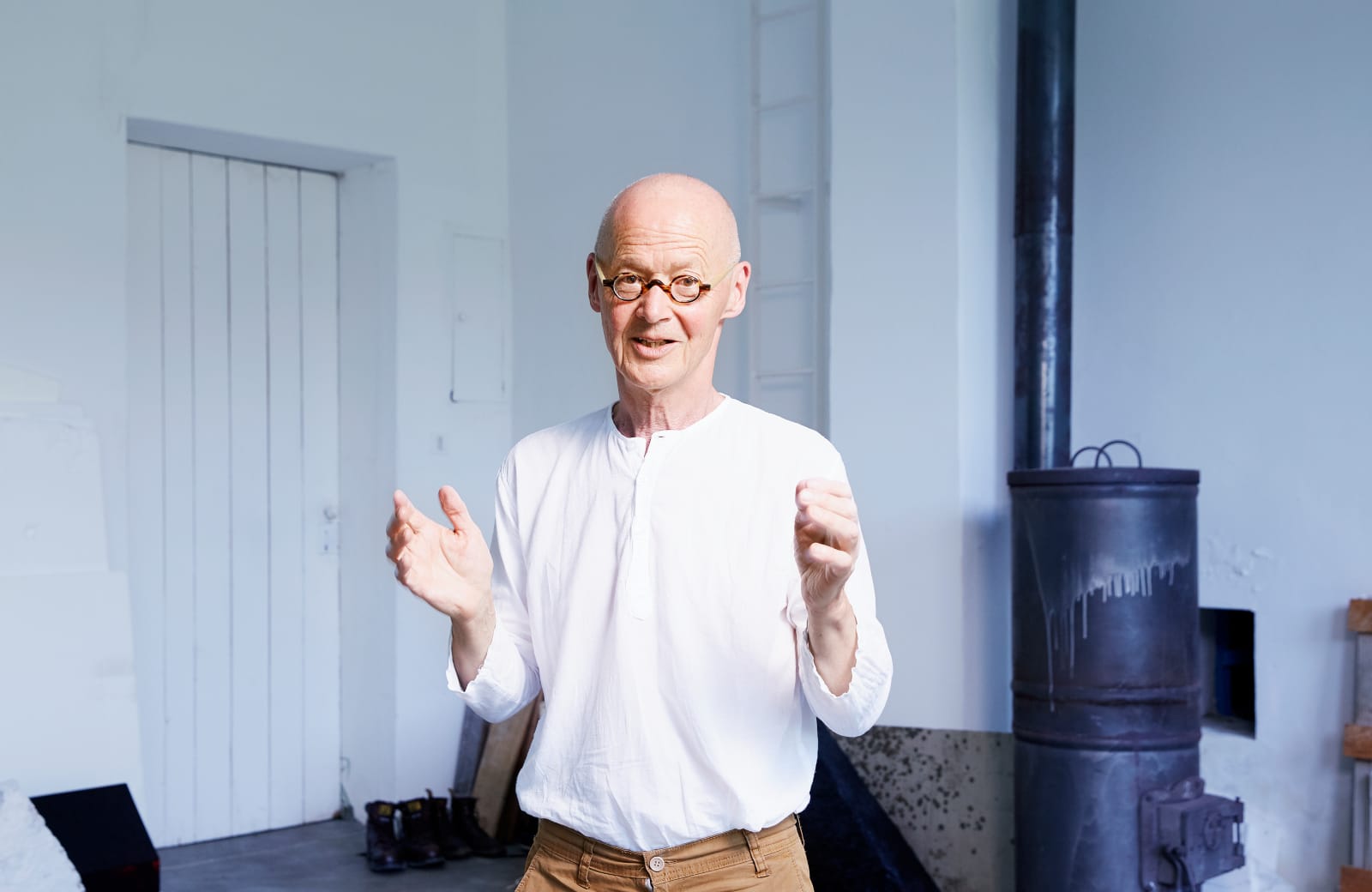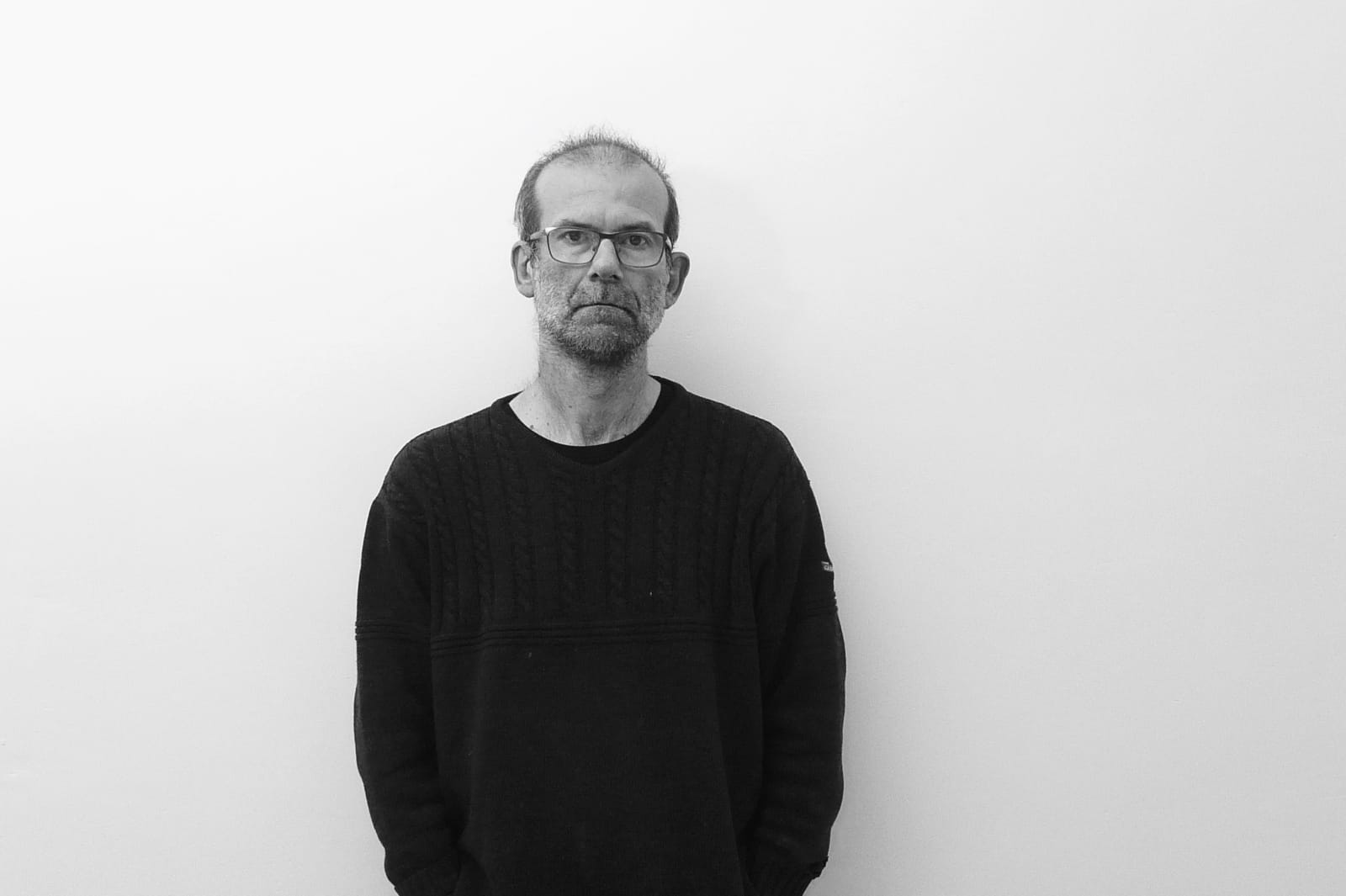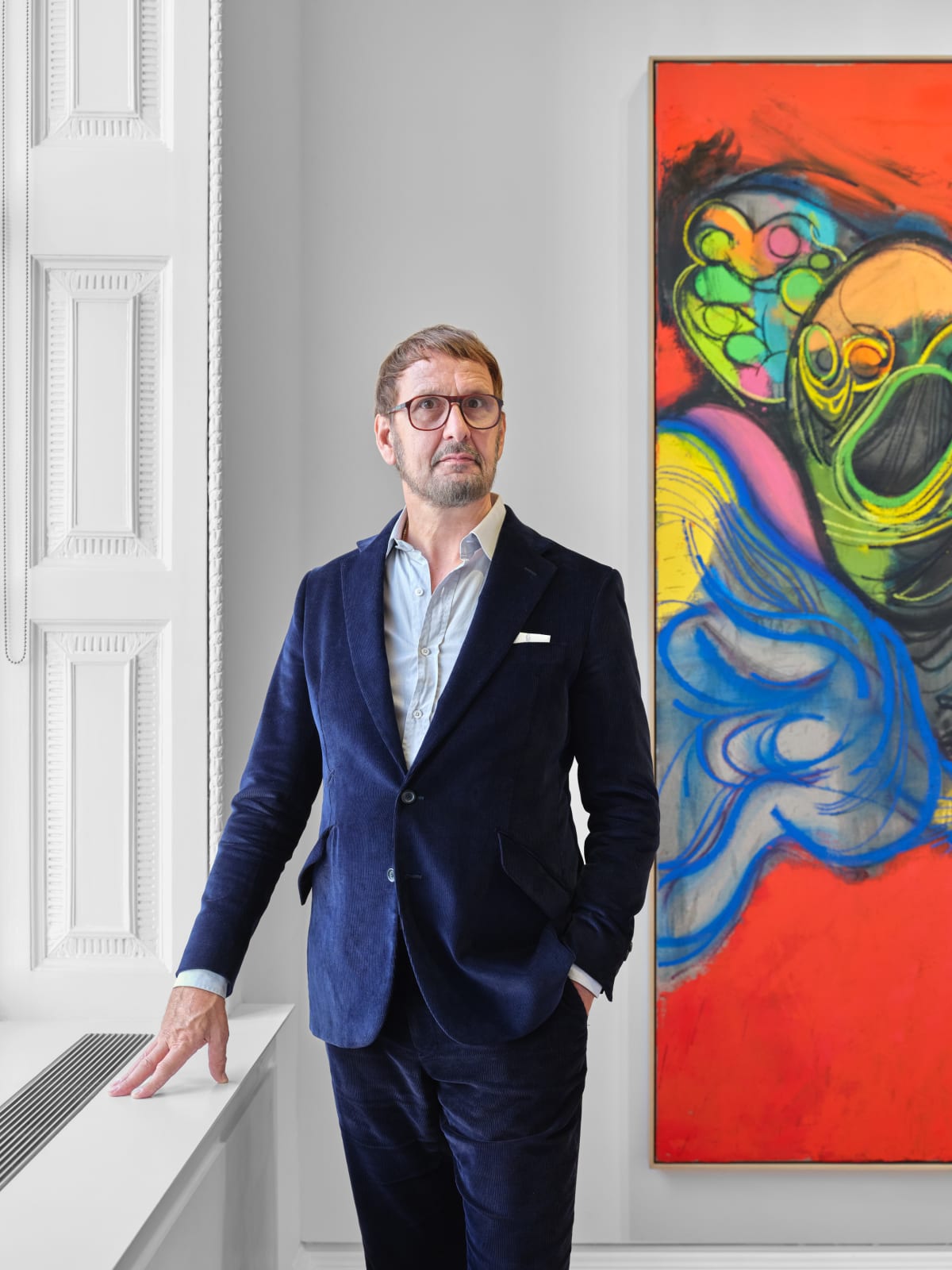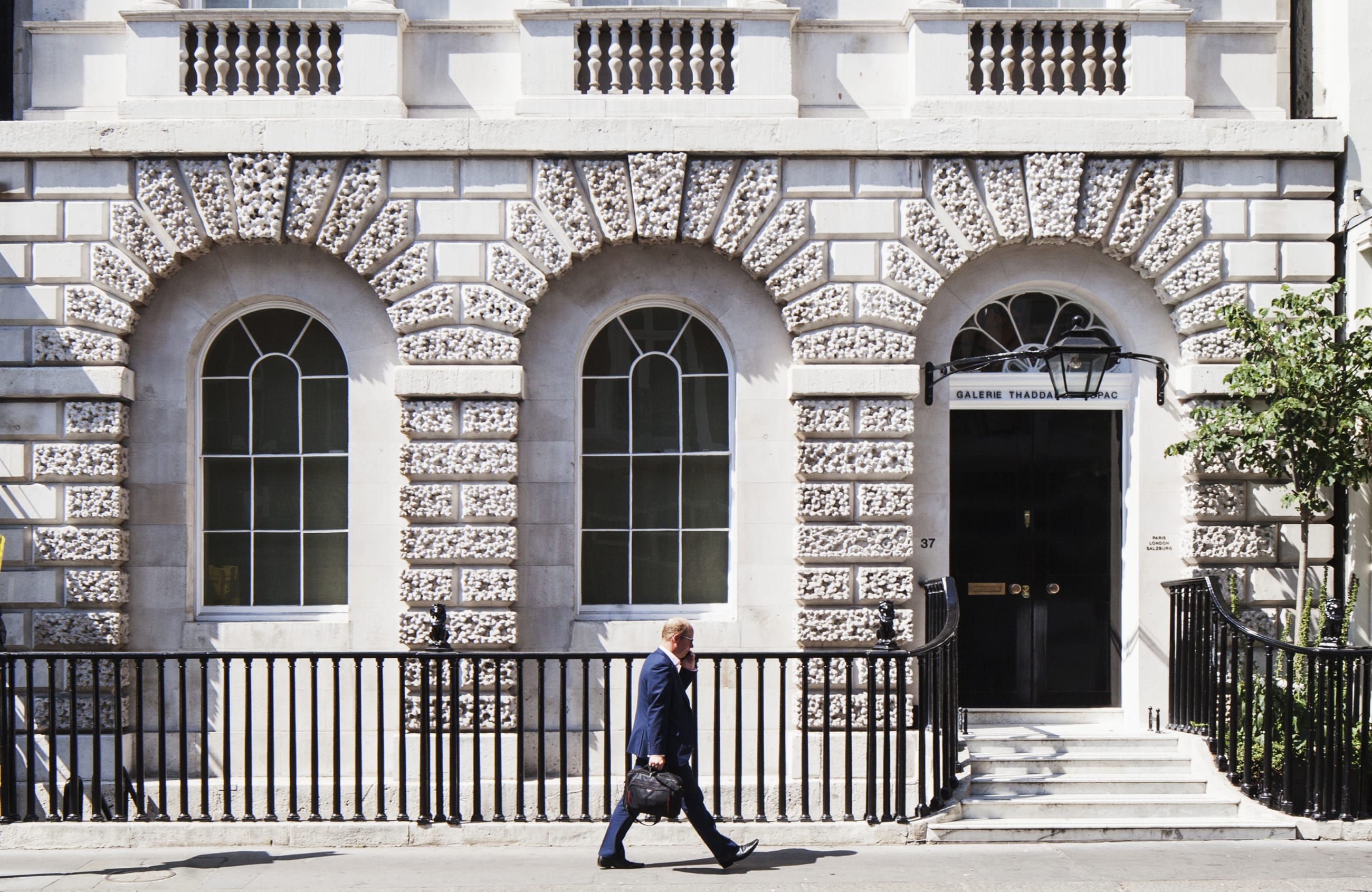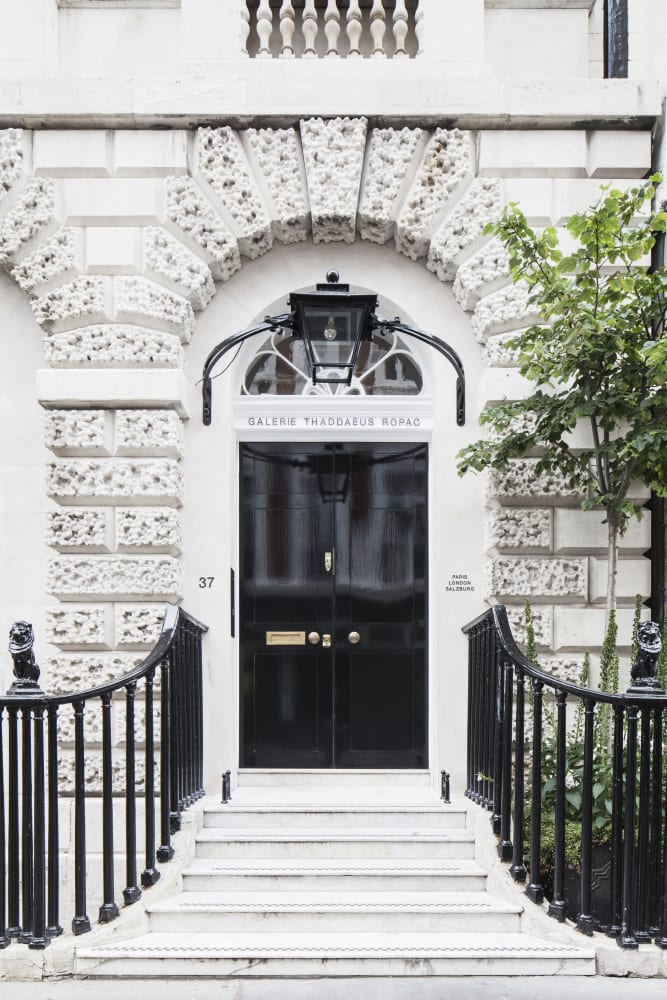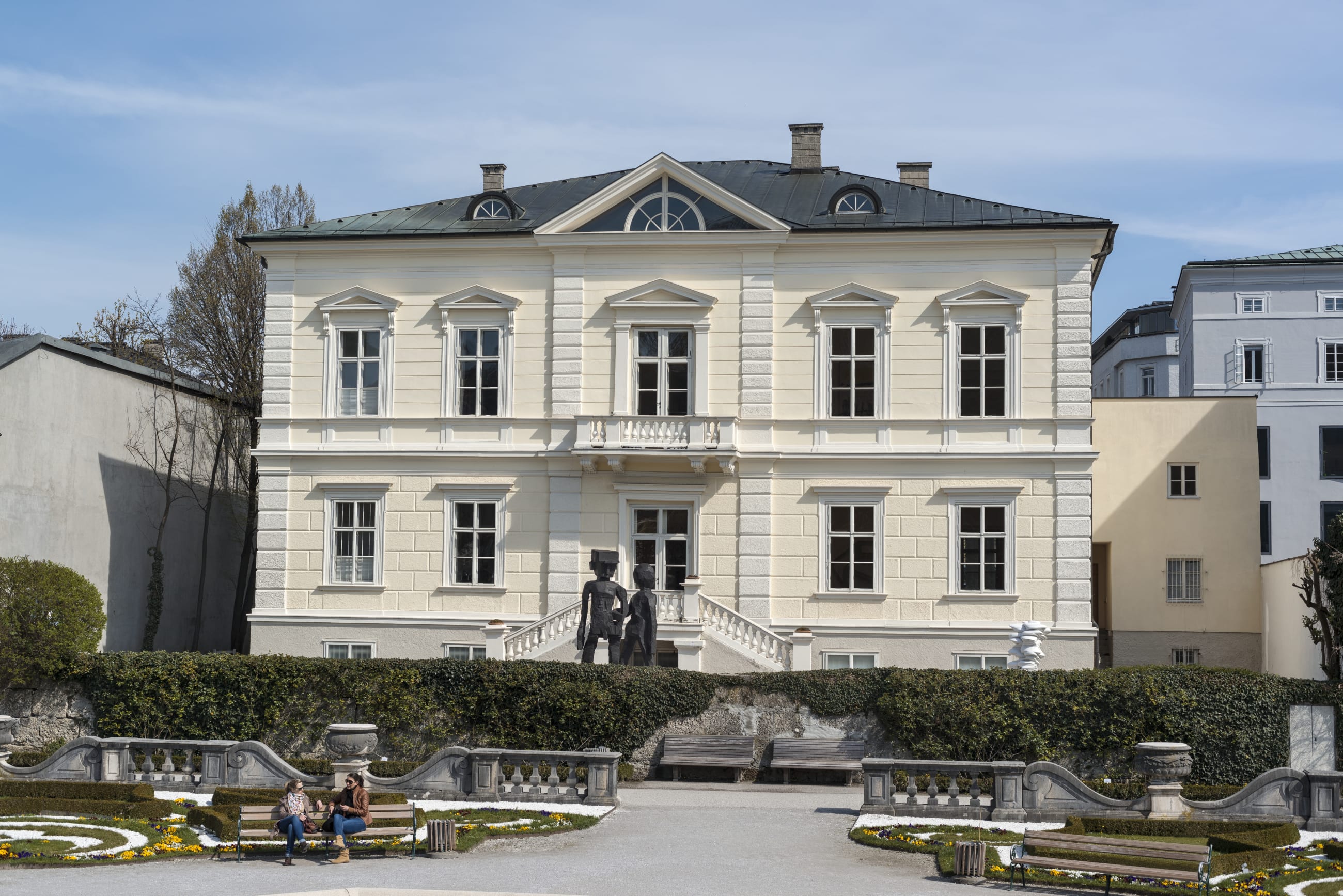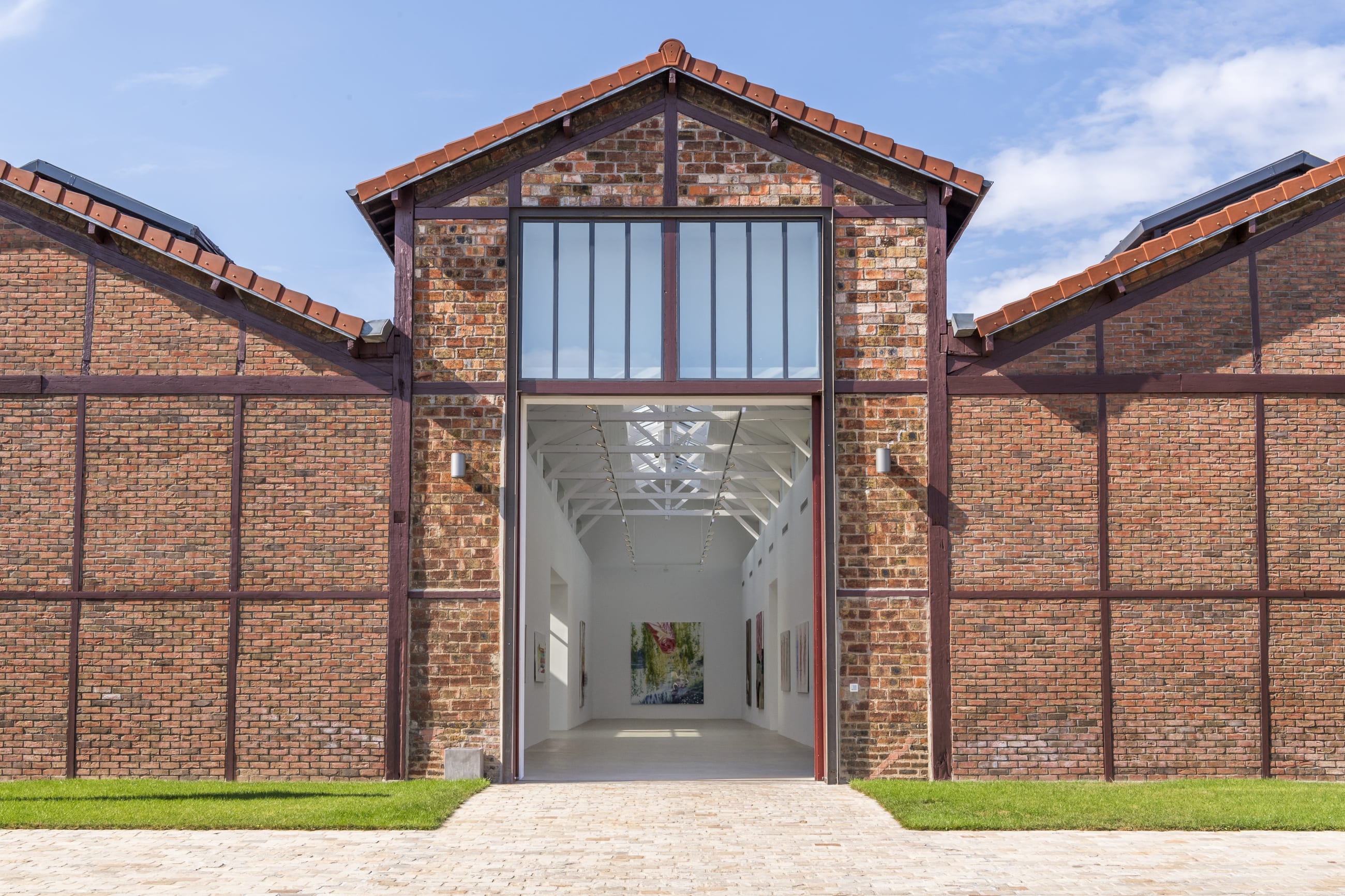Galerie Thaddaeus Ropac is pleased to present a comprehensive exhibition by German artist Imi Knoebel, consisting of Datums-, Drachen- and Schnitt-Bildern as well as his new miniature series Elements, from 29 July until 26 August 2017.
In his new works, Imi Knoebel (b 1940 in Dessau) once again explores the remarkable vitality of colour reduction and formal abstraction. In these pictures – as indeed in all his work – he remains true to the tradition of abstract, non-representational art, following artists such as Kazimir Malevich or Piet Mondrian.
After puristic line paintings, light projections and white paintings (1972-75), Knoebel first used colour in 1974; from 1975 onwards he went on to overlapping coloured rectangles called Mennigebilder [red lead pictures] and finally to a garish, gesturally expressive application of paint on plywood or metal panels placed in a specific spatial relation. Since the 1990s, Knoebel has increasingly been using aluminium as a painting ground, and has begun to put together works composed of cut-out aluminium elements combined to form geometric colour fields, the significant features being the colours and their boundaries.
The Datumsbilder (Date Paintings) from the Liaison Astéroïde series consist of combined aluminium and wall objects, their silhouettes displaying a wide variety of irregular geometric forms. In these works, the artist focuses on the identity of amorphous bodies resulting from the convergence of two diverse elements – as in a collision of asteroids. They do not merge into a homogeneous whole, however; the boundaries remain clearly visible, and different materials are visually rendered by means of corresponding colouration and application of paint.
The idea of the kite as a diagonal, dynamic element has been central to Knoebel's work since the early 1970s. The minimalist, irregular tetragons, entitled Drachenbilder (Kite Paintings), are characterised by very fine, straight and diagonal cuts. The resulting sections of the layered monochrome aluminium panels are reminiscent of the shape of kites.
The new pictures contrast with Knoebel's frequent triad of primary colours, which became the symbol of purely non-representational painting at the beginning of the 20th century. The formal paradigm of Kazimir Malevich's Black Square, referenced here in metallic and reddish hues, remains recognisable.
Almost like a development of the Drachenbilder, a discreet, very regular, yet apparently quite arbitrary line runs through the monochrome surfaces of the new Schnitt-Bilder (Cut Paintings). This playful division, which cuts through the picture at a completely unexpected place, alters its balance, giving it a totally new aesthetic.
In his new series named Elements, Knoebel's playful treatment of colour and dimension becomes particularly clear. Groups of tiny organic forms – comparable with nano-versions of the other works – are presented as a frieze. The recurring exploration, in the Elements, of the possibilities offered by reduction and abstraction shows the emotional and intellectual power of geometry. Beyond the colouration, Knoebel's pictures become objects of purely aesthetic experience and perception. His works are always based simultaneously upon the principles of innovation and continuity.
Besides solo exhibitions of Knoebel's work held in museums including Kunsthalle Düsseldorf (1975), Kunstmuseum Winterthur and Kunstmuseum Bonn (1983), and in the Deichtorhallen Hamburg (1992), he was represented at documenta 5, 6 and 7. In 1996 the Haus der Kunst in Munich held a major Knoebel retrospective. 2008 saw a comprehensive permanent exhibition, at Dia:Beacon, of the legendary block of works 24 Colors - for Blinky (1977) presented by the Dia Art Foundation, New York. In 2009 the Neue Nationalgalerie, Berlin showed a retrospective with key monumental works, starting from the famous Room 19. Parallel to this exhibition, the Deutsche Guggenheim Museum in Berlin showed works from the collection of the Deutsche Bank and new works. In June 2011 Knoebel's monumental stained-glass windows were consecrated in Reims Cathedral. In 2014, the Kunstmuseum Wolfsburg celebrated Imi Knoebel's 75th birthday with the hitherto most comprehensive exhibition of his works from almost 50 years. In 2016 the Musée National Fernand Léger showed new works by Knoebel in dialogue with ceramics by Fernand Léger. This year a comprehensive solo exhibition at Skulpturenpark Waldfrieden, Germany will be shown from 15 July – 3 December.
Imi Knoebel's works are represented in distinguished international collections including the Musée National d’Art Moderne/Paris, Dia: Beacon and Dia Art Foundation/New York, Bonnefantenmuseum/Maastricht, MMK/Frankfurt, Berardo Museum/Lisbon, Broad Contemporary Art Museum/Santa Monica, MoMA/New York, MOCA/Los Angeles, Museo Reina Sofia/Madrid, Hamburger Bahnhof/Berlin, Norton Museum/West Palm Beach and the Goetz Collection/Munich.















